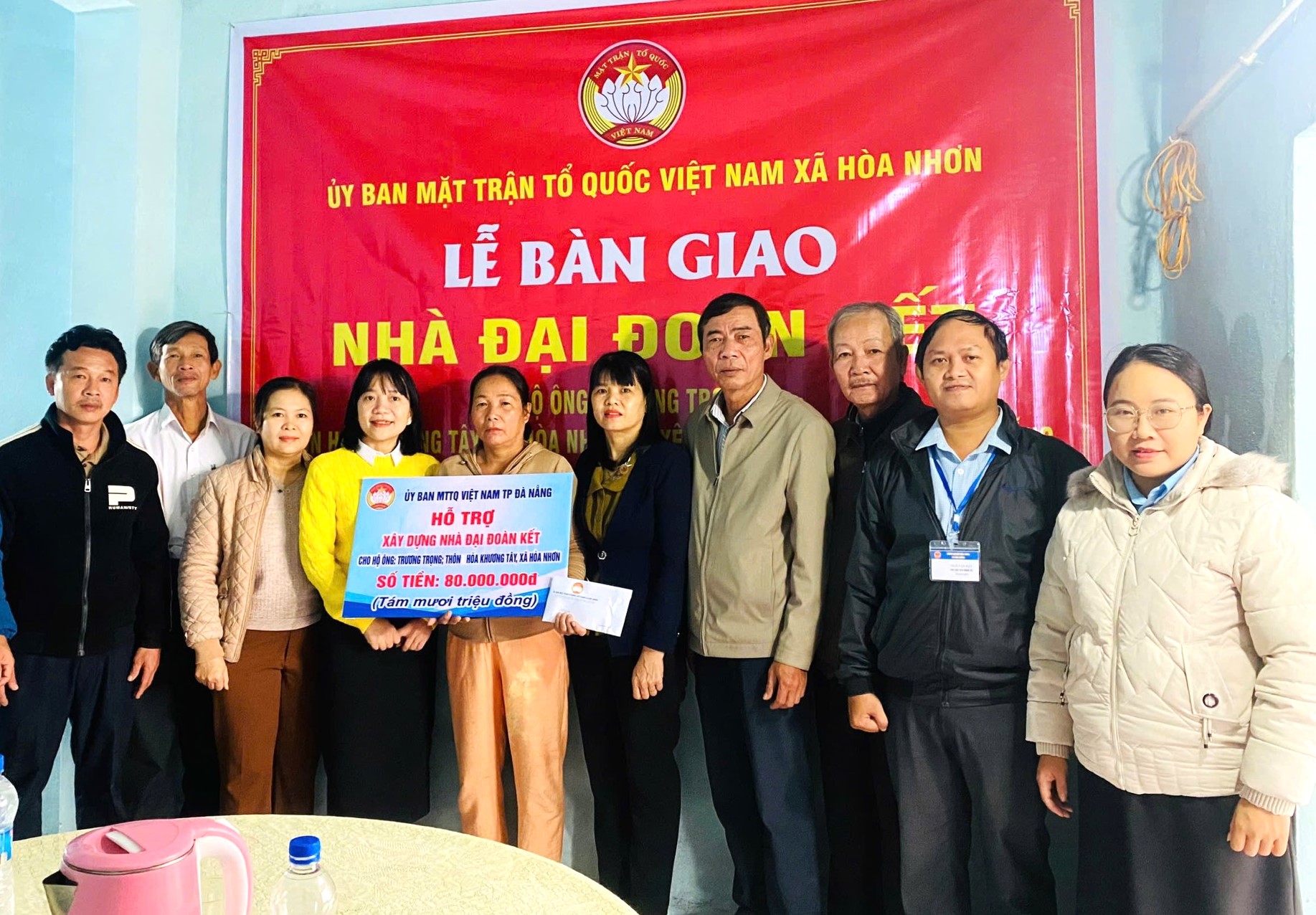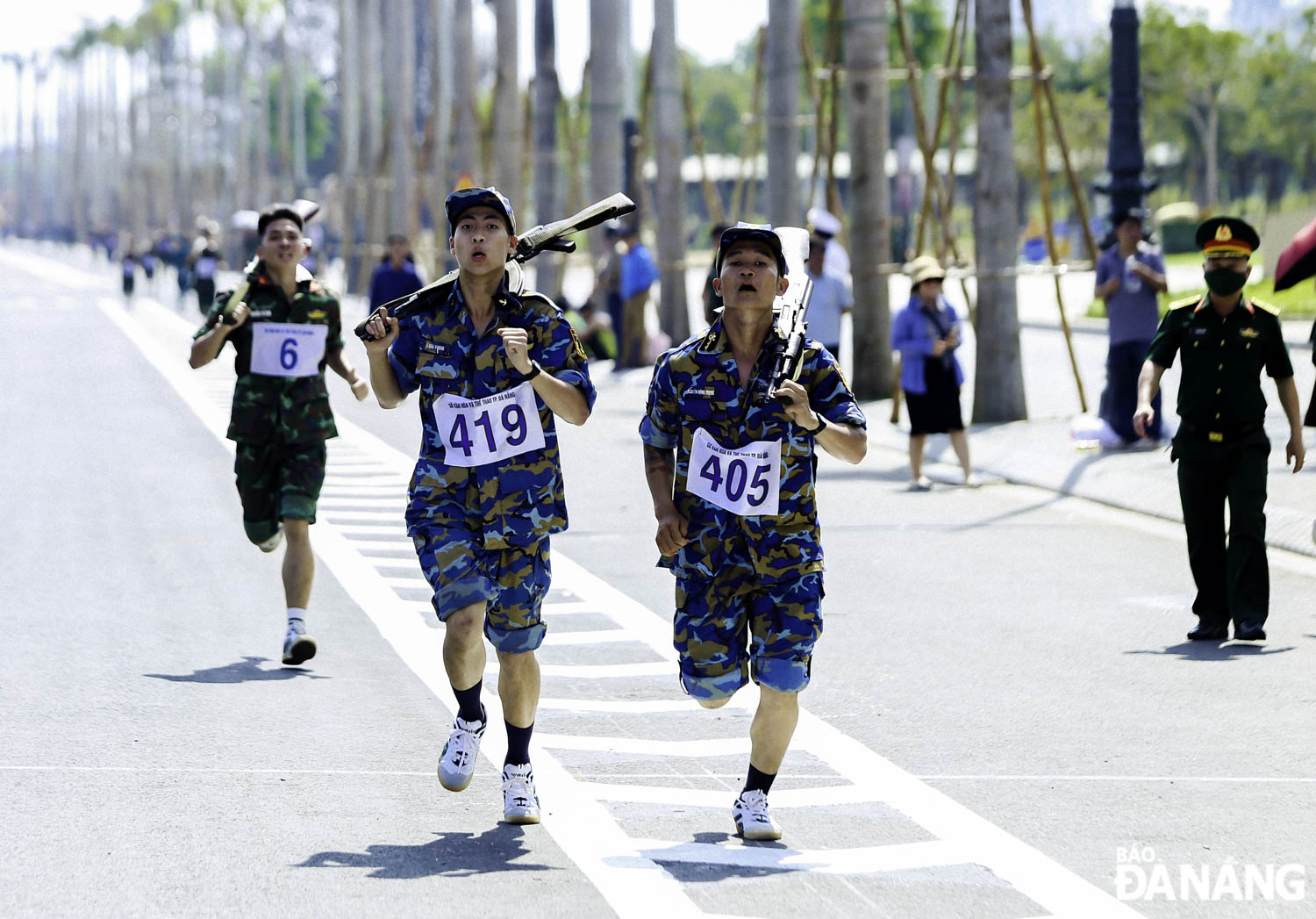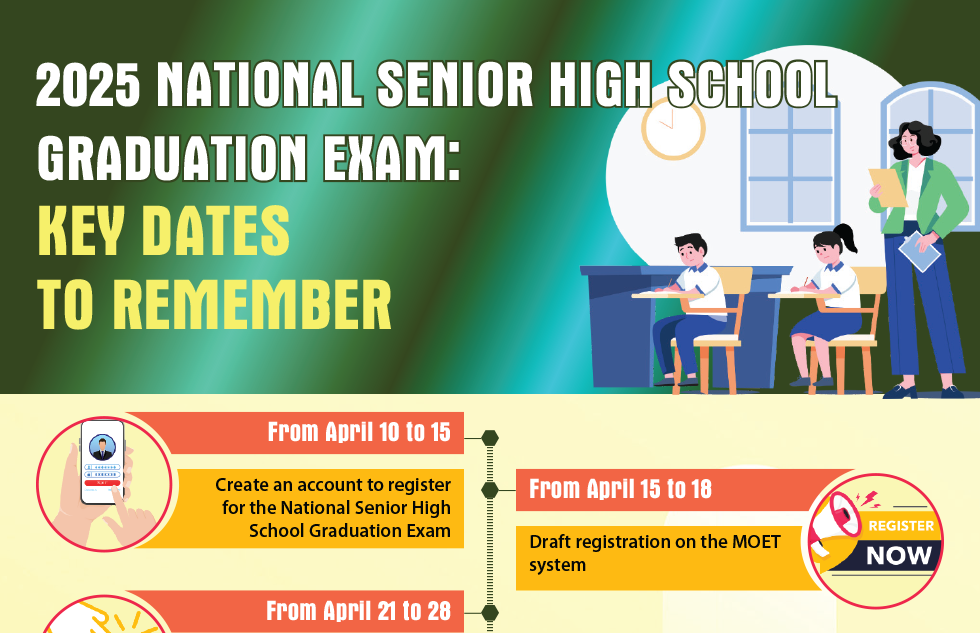Da Nang's landmark social welfare policies
Building upon the success of the city’s pioneering programmes “5 Nos,” “3 Haves,” and “4 Safes,” the Da Nang government has implemented numerous standout social welfare policies during the 2021–2025 period. These initiatives continue to improve the material and spiritual well-being of the people, ensuring fairness and equality across society.
 |
| Residents are delighted as the city increases housing support for low-income families beyond the central government's standards. In the photo: The Viet Nam Fatherland Front Committee of Hoa Nhon Commune, Hoa Vang District, hands over a new house to a low-income family. Photo: L.P |
Under the National Target Programme for Sustainable Poverty Reduction 2021–2025, the city has developed tailored mechanisms and policies to accelerate sustainable poverty reduction alongside the central government’s directives. On 17 December 2021, the Da Nang People’s Council issued Resolution No. 76/2021/NQ-HĐND, establishing multidimensional poverty standards for the 2022–2025 period. These standards raised the city’s poverty threshold by an additional VND 500,000 per person per month above the central government’s baseline. This adjustment enabled hundreds more low-income and near-poor households to benefit from support policies, fostering motivation for self-improvement.
To help impoverished families improve their living conditions, on 14 December 2023, the Da Nang People’s Council issued Resolution No. 105/2023/NQ-HĐND to revise and supplement Resolution No. 75/2021/NQ-HĐND. From 1 July 2024, the support for building new homes for low-income families increased to VND 80 million per house (up from VND 50 million). Similarly, support for home repairs rose to VND 30 million per house (up from VND 20 million), exceeding the central government’s standards of VND 40 million for new homes and VND 20 million for repairs.
By the end of 2024, families like Mr. Truong Trong’s in Hoa Nhon Commune, Hoa Vang District, were able to move into newly built homes. A low-income household with an elderly and ailing breadwinner and an unemployed spouse, Mr. Trong’s family had lived for years in a dilapidated house with no means for renovation. With VND 80 million in assistance from the city’s Vietnam Fatherland Front Committee and support from the local community, their house was completed in just over two months, bringing joy to their family and neighbours.
In addition to aiding impoverished households, the city has implemented tailored policies for social protection beneficiaries. Building on Government Decree No. 20/2021/NĐ-CP, which addresses social assistance for disadvantaged groups, the Da Nang People’s Council issued Resolution No. 34/2021/NQ-HĐND, increasing the city’s social assistance benchmark from VND 360,000 to VND 400,000.
Subsequently, Resolution No. 101/2023/NQ-HĐND was introduced to expand both eligibility and benefit levels beyond central government standards. This includes monthly allowances for individuals aged 75–80, cancer and end-stage renal failure patients without pensions or social insurance benefits, and third-generation descendants of chemical warfare victims with mild disabilities. These individuals now receive monthly assistance at 1–1.5 times the city’s social assistance benchmark, health insurance cards, and funeral cost support equivalent to 20 times the benchmark.
As of now, nearly 43,000 social protection beneficiaries receive monthly allowances, amounting to over VND 270 billion annually. “The city’s standout social welfare policies serve as a strong foundation for the people and highlight the humanitarian spirit of the local government in caring for its citizens,” shared Ms. Le Thi Chau from Tho Quang Ward, Son Tra District.
The Politburo’s Resolution No. 43-NQ/TW (Session XII) outlines Da Nang’s development goals through 2030, with a vision to 2045, positioning the city as a peaceful, civilised, and livable place. To realise this vision, the city government and its citizens are working tirelessly to achieve targets in social welfare, public security, urban planning, and environmental protection.
According to Mr. Nguyen Dang Hoang, Director of the Department of Labour, Invalids, and Social Affairs, resources mobilised to support impoverished households in 2024 are estimated at nearly VND 250 billion. Of this, the city’s "For the Poor" Fund raised over VND 100 billion. The municipal budget provided health insurance for nearly 37,000 low-income households, waived tuition fees for approximately 4,000 preschool and school-aged children, and financed the construction or repair of nearly 270 homes for impoverished families. Additionally, vocational training programmes were organised for nearly 464 workers from low-income households.
These efforts resulted in 2,298 households escaping poverty, including 505 meeting the central government’s standards and 112 households recognised as families of revolutionary contributors, achieving the set targets.
Da Nang’s innovative social welfare policies reflect a commitment to improving the quality of life for its residents, ensuring no one is left behind on the journey toward building a prosperous, equitable, and livable city.
Reported by LAM PHUONG - Translated by TRUC VY, V.DUNG








